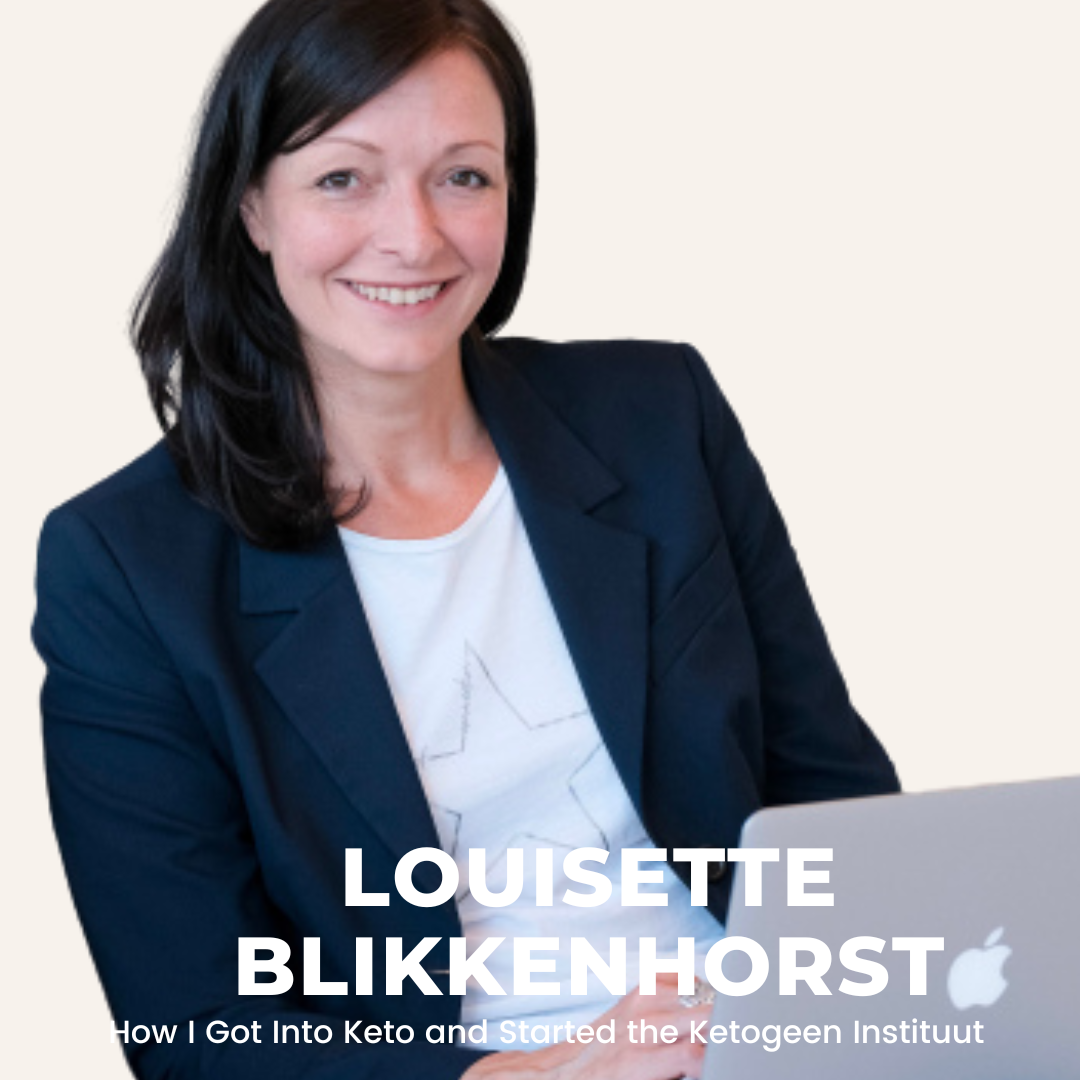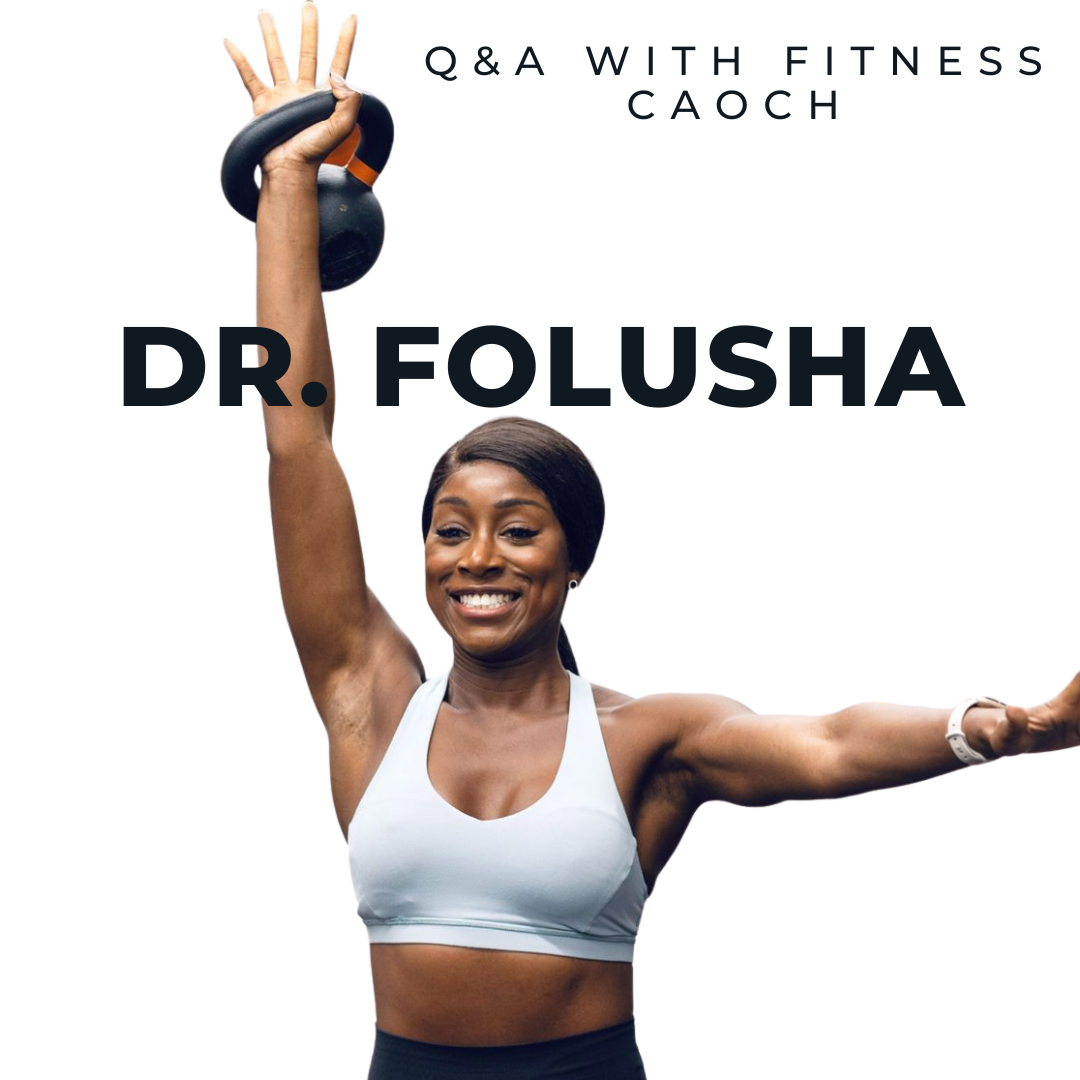Lifestyle diseases is a term you hear more and more often. Louisette, the founder of the ketogenic institute, is trying to eliminate this from the world with the effective ketogenic diet. On her website you will find everything about ketogenic diet and lifestyle.
For professionals, they offer multiple training programs that specialise in Keto nutrition, therapy and lifestyle. In addition, you can also follow a program if you want to try the ketogenic lifestyle yourself. They help guide you through a program with nutrition of exercise. You will learn how both play a role in health.
In this podcast, Louisette talks about how she got started with Keto and the institute, what the biggest misconception is about this type of diet, and how, through her website and trainings, she is passing along everything she has learned to anyone who is open to it.
The beginning
I founded ketogenic institute Nederland. How I got here I will explain right away. I have always been busy with courses and nutrition. At my last course I came across the term ketogenic diet. I had never heard of it before. I've always been interested between nutrition and human health. How can you still make sure you are functioning at your maximum. Then in 2016 I started collecting a lot of information about ketogenic and thought let me try this out for myself. In January 2017, I started doing just that. Within a few days I already noticed so much difference in my energy. I also had to deal with the Keto flu but I already felt very sharp mentally and the weeks after that I felt super! I wanted to know everything about this. I then did a course on this. There turned out to be whole lifestyles of this already. I was surprised that I had never seen anything about this before. I was completely captivated. After many studies, I started putting this into practice. I had a practice as an orthomolecular therapist. With the people I wasn't getting on with I suggested the Keto diet. When they did this, they improved like crazy within two or three weeks. So I was completely converted since then. From there it started to grow.
Before Keto
Before the ketogenic diet, I had been on a palo food diet for some time. Already much less dairy and no more legumes. I was not very aware of carbohydrates. Before that I was really a carbohydrate junky. I always had afternoon dips and fell asleep in the evening. That could be improved a lot.
In my practice I applied it. This was first called Banting Nederland with a nod to south Africa where this diet originally came from. So later it became ketogenic institute Nederland. I noticed that I could help so many people with this I thought, I'm going to make an online program of this for individuals. I got more and more questions from colleagues asking. How do you do that where do you learn that. I see more and more courses in English, is there also something available in Dutch. I was actually waiting for someone to start that that I could join but that didn't happen. Then I gathered all my material and my knowledge and I made a course out of that. That started 2.5 years ago now.
The biggest misconception of Keto is that you are eating way too much fat. That comes from the classic Keto diet for children with untreatable epilepsy and have to eat a lot of fat. They eat about 90% fat. That, of course, is huge. That's not what I do or teach trainees. I make them eat much less fat. The main thing is that you either go fasting well of course you don't keep that up very long. You get into ketosis very effectively from that. If you are going to follow a diet or food pattern it is important that you keep the carbohydrates low. Maybe a maximum of 30 grams a day if you really want to go into ketosis. You do need healthy fats but as far as I'm concerned don't put cream butter and oil in every coffee don't take fat bombs between meals. You do need to take fats and more than we are used to but it's not that you just need to eat mountains of fat. That's really a misconception. Protein is also very important in the diet.
What is Keto?
Ketosis is a metabolic state in your metabolism where you switch completely to fat burning. From those fat burns come metabolite's (residues) called ketones. The advantage is that we can use those as energy. We can make sure in a very elegant way that the cells are still provided with fuel even when there is scarcity or when there are no carbohydrates. Those ketones that give point one a lot of energy and you feel that very well and point two it also has other effects that are very good for health. The state in which you make and use ketones that is ketosis.
"People who want to start Keto I would recommend getting into that ketosis slowly. Your whole body has to get used to it and it is easier to do it gradually."
For women and men going into ketosis is different
Women obviously have a lot more hormones that they have to regulate we see that in certain phases of the cycle or around pregnancy that more carbohydrates are needed. That it comes from the primal phase. A woman is much more sensitive. She really needs to be able to sense whether it is safe or whether there is danger. Is there enough rest and peace but also is there enough nutrition. When you are constantly low on carbohydrates or you are high in your stress level or you are fasting, which is also a stress stimulus, it can be that at that moment it is a little too much. Then you feel that things are not working out. Then you may feel more like eating carbohydrates and you may be out of ketosis. So respond to that. Take something sensible with enough protein or fat, maybe a little carbohydrate. Then you will get through that morning much easier. You won't have that stress trigger anymore. That's much more relaxing.
There are many differences in the types of fats you can eat. Many reports say that saturated fats are unhealthy for you. That it clogs your veins, that it is bad for your heart. Meanwhile, even a website for dutch dieticians has stated that there is no difference between saturated fats and cardiovascular disease. It has simply been debunked.

What ingredients?
It is important to eat natural ingredients that is better than unnatural oils such as: Margarines, sunflower oils, rapeseed oil, soybean oil. Those create inflammation in your body. It throws over all your metabolism. Omega 6 oils are best avoided and I would go for omega 3 oils or animal fats because they have anti-inflammatory properties. For someone with high blood pressure, I would say start with go eat low carb because then your blood pressure will drop very quickly. Don't be afraid of the good fats you can feel free to eat them.
At the beginning, I would say eat when you are hungry. People are so inclined to start limiting themselves and just sticking to those times. First let your body get used to low carbs and more fats. Then when you are hungry I would say have a boiled egg or a seed cracker with a piece of cold cuts or something you like. In the beginning I don't give it a hard time. Then you will see that you will get into that fat burning and then you will also lose weight. At some point you won't lose weight. Then you are burning your own food but not the fat of your own body anymore. That's the time to take in less fat. Possibly eat some more protein if you need it. Then your body will start using its own fats and that's what you want. So ultimately do look at how many calories you're getting in. That way you can play with that a little bit. People who want to gain weight can just add more fats again. Then I recommend increasing your portions and not snacking. Add some extra oils to get extra fat in.
My daily food diet
I myself start with MCT in my coffee and feel if I need breakfast or not. Then I usually choose something with eggs or a low carb cracker with some cold cuts. Sometimes also some dairy with keto granola. Depends on what I feel like and what I have in the house.
In the afternoon I basically just see what I have in the house. Canned fish, chicken, eggs, vegetables, avocado, tomatoes or a soup I just make a feast of it. Sometimes I just feel like a piece of meat then I just eat a piece of steak. In the course of the evening I'll just cook for my family and then I'll eat something like sweet potato with it or if I do feel like carbs I'll just eat that with it. Usually it's just meat, fish, eggs with lots of vegetables. I put some olive oil on top for some fat. In the evening I enjoy a piece of dark chocolate. That's it.
"As long as you listen to your own body"
You may also like:
- Biohacking and all the ways how to start!
- How Adapting Daily Habits Can Lead To Long Term Health Results




Leave a comment
All comments are moderated before being published.
This site is protected by hCaptcha and the hCaptcha Privacy Policy and Terms of Service apply.